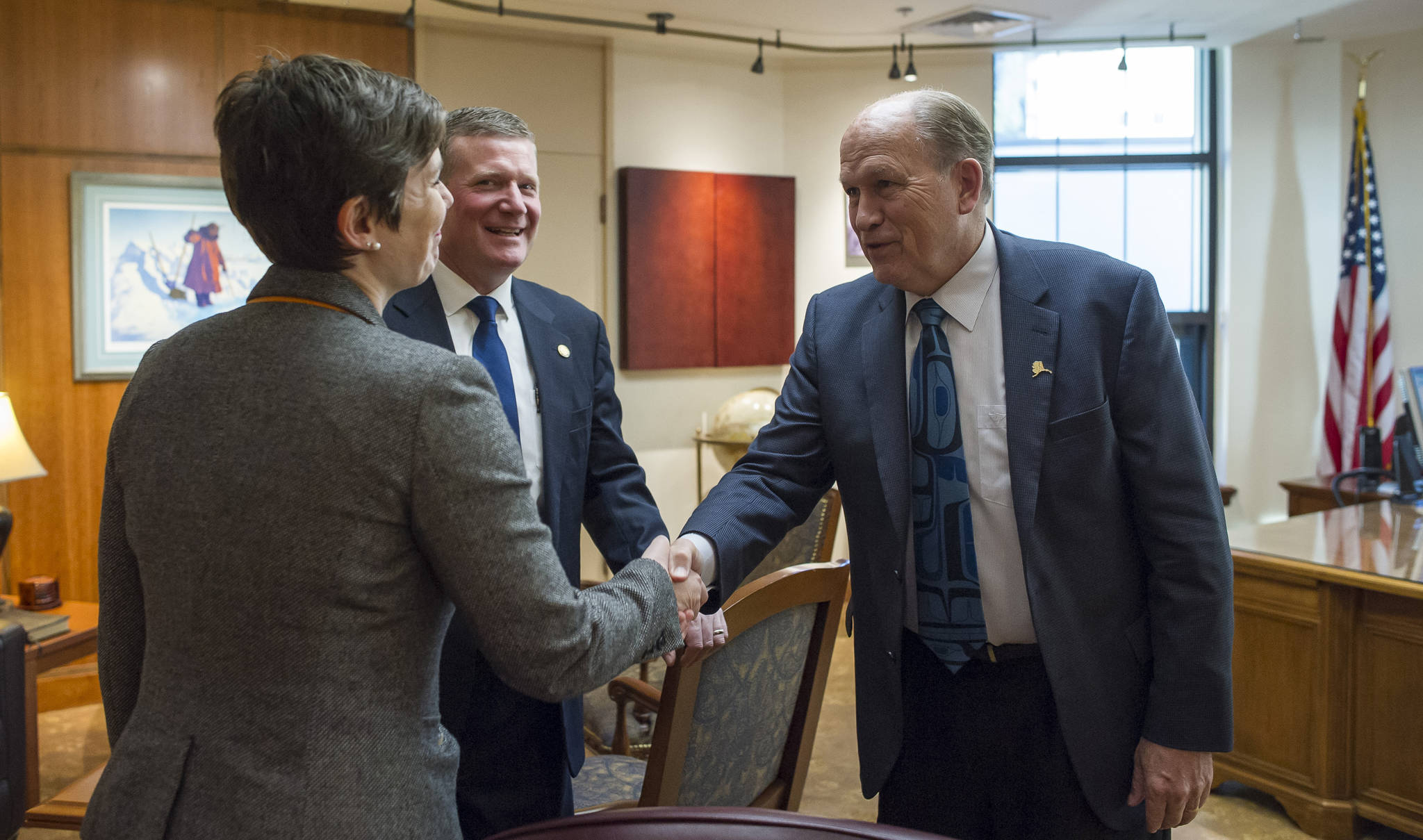After the Girl Scouts and the Juneau-Douglas High School choir, two senators walked into the chambers of the Alaska House of Representatives with an air of solemn ceremony and pronounced the Alaska Senate ready for business.
Speaker of the House Bryce Edgmon, D-Dillingham, didn’t waste any time puncturing that solemn air.
“We’ve been waiting for that message for a long time,” Edgmon replied, drawing a wave of laughter that submerged the room.
[SLIDESHOW: 30th Alaska Legislature Opens]
Edgmon’s comment was one of the few light notes as the 30th Alaska Legislature began its second regular session with a day of ceremony and procedure. Each Legislature lasts two years, bookended by statewide general elections, and Tuesday marked the start of the second year.
This year, lawmakers face a $2.5 billion budget deficit. The state’s principal savings account, the Constitutional Budget Reserve, is almost exhausted. House and Senate remain deeply divided on social and fiscal issues. The House itself has been roiled in the wake of sexual harassment allegations against a legislator who resigned because of them.
Despite all those problems, most lawmakers say they’re optimistic — at least, more so than they were last year. Whether that says more about the gloom of last year or improved conditions this year depends upon who you ask.
“Guardedly,” said Senate Minority Leader Berta Gardner, D-Anchorage, when asked whether she is optimistic for the coming session.
“I’m optimistic that we’re going to get done earlier this year and that we’re all going to strive to make things happen,” Edgmon said after Tuesday’s opening-day House floor session.
The Legislature was in session for 211 days in 2017, and regardless of how long it works this year (the 90 days requested by voters, the 121 days limited by the state constitution, or something longer) it is almost certain that the 30th Legislature will be in session for more days than any other Legislature in Alaska’s history.
It may also be one of the least productive. With a deep divide between the House and Senate and most attention focused on the budget, lawmakers passed just 32 bills in 2017, the fewest of any year since statehood. The previous low was 39 bills in 2011.
Senate Majority Leader Pete Kelly, R-Fairbanks, said he expects this year to be “somewhat of a continuation of last year.”
Lawmakers will spend much of the session debating the merits of Senate Bill 26, which passed the House and Senate in different versions last year. If a compromise is reached and approved by Gov. Bill Walker, the state will divert a portion of the earnings of the Alaska Permanent Fund to government services, cutting the deficit by as much as $2 billion.
The most significant drawback to that approach is that it calls for the Permanent Fund Dividend to be permanently cut. The fund cannot reliably support both a full dividend and a significant diversion of earnings to fund state government. Last year, lawmakers cut the dividend on a temporary basis. Gov. Bill Walker did the same in 2016.
Kelly said the Senate will not consider new taxes unless the state’s situation encounters “a pretty radical adjustment.”
Senate Majority Leader Peter Micciche, R-Soldotna, said things outside the Capitol appear to be improving as well.
“We have seen the bottom; we’re starting to see an uptick in oil and gas employment,” he said of the state’s ongoing recession. “We believe we’re through the woods.”
Rep. Jason Grenn, I-Anchorage, said it’s pretty clear where the Legislature stands at the start of the year.
“I think the feeling is that we can’t take any more steps toward the cliff. We’re there,” he said.
Despite that position, he’s staying optimistic.
“Did you see what I tweeted this morning?” he said.
It was the Journey song, “Don’t Stop Believin’”.
• Contact reporter James Brooks at james.k.brooks@juneauempire.com or call 523-2258.

